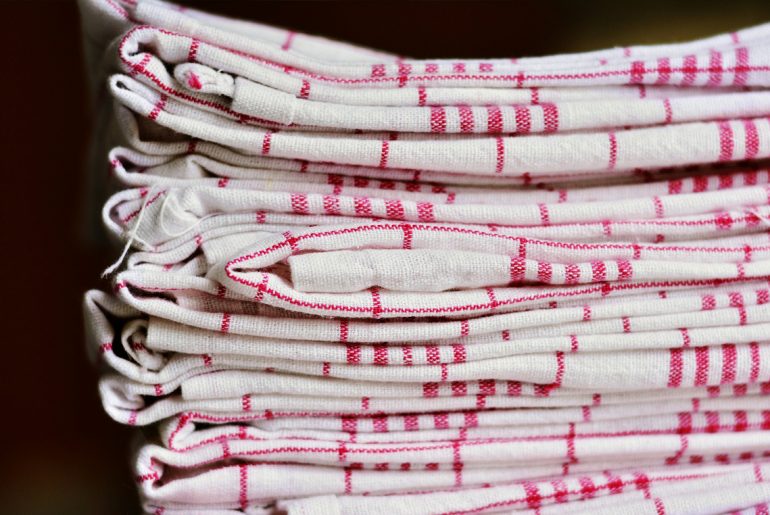We were already weary of kitchen sponges, but now we know to look out for kitchen towels, too.
Kitchen towels do many duties from wiping to drying, holding hot things and cleaning surfaces. They’re ubiquitous in households around the world, but now we know, those pretty patterns might be hiding some dangerous secrets.
A new study from the University of Mauritius reported by the American Society for Microbiology found that family size and type of diet factor into the growth rate of the bacteria on kitchen towels that can lead to food poisoning and other serious infections.
Researchers took an up close look at 100 kitchen towels after one month of use and found that 49 percent of the towels contained high levels of bacterial growth. The bacteria count increased with the size of the family and also when children or extended families were present. In households where towels had more than one purpose, researchers also found a higher pathogen count than those towels used for a single purpose. Towels kept in humid conditions were found to have more bacteria than dry ones.
Of the 49 percent of towels found to have dangerous bacteria present, 36.7 percent of them contained E. coli, 36.7 percent contained enterococcus app, and 14.3 percent contained Staphylococcus aureus.
“Our study demonstrates that the family composition and hygienic practices in the kitchen affected the microbial load of kitchen towels,” lead author Susheela Biranjia-Hurdoyal said in a press release. “We also found that diet, type of use and moist kitchen towels could be very important in promoting the growth of potential pathogens responsible for food poisoning.”
Environment played a big role in the researcher’s findings. Staph bacteria (which causes skin and soft tissue infections) were more likely to be found in households with lower socioeconomic status or households with children. E. coli (which causes gastroenteric infections) appeared more often in humid towels as well as where families ate meat, and also with those who repurposed their towels.
The take away:
Kitchen towels are great because they save us from filling up the landfill with wasteful single-use paper products, so it’s a step in the right direction. Just be sure to wash them as often as possible — every few days, and keep kitchen towels for separate purpose. If you’re going to use one to soak up spilled milk, don’t then use it to remove a hot bowl from the microwave or as a napkin with dinner.
Originally posted June 11, 2018
ALSO SEE: These two workout classes are dirtier than your toilet.




